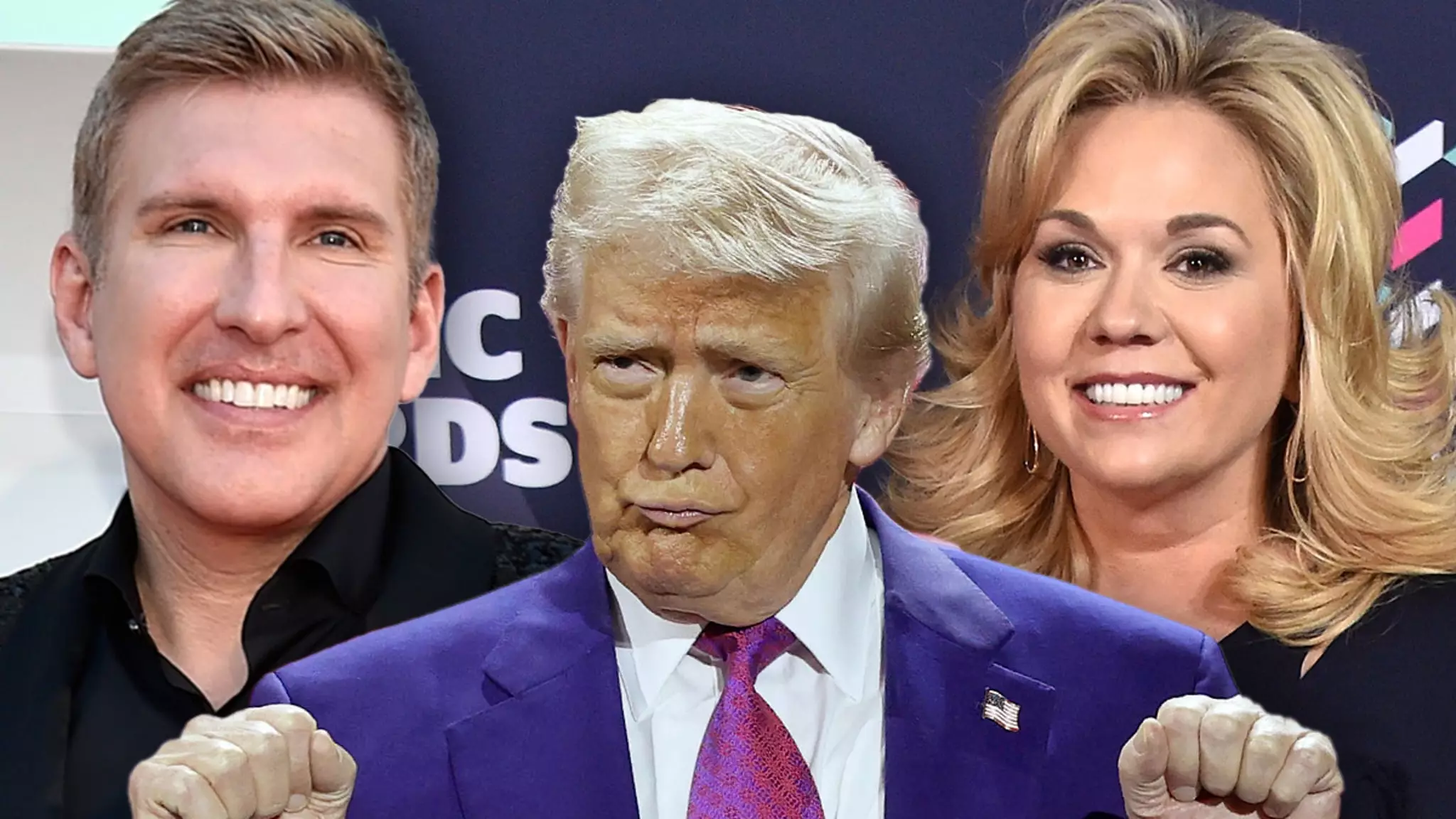The recent news surrounding Todd and Julie Chrisley, the well-known stars of the reality show “Chrisley Knows Best,” underscores a contentious intersection of celebrity culture and the U.S. legal system. After being convicted of financial crimes in 2022, their future appeared bleak as they faced serious prison sentences—12 years for Todd and 7 years for Julie. However, an unexpected twist emerged when former President Donald Trump granted them full pardons, igniting a wave of discussions regarding the fairness of their legal proceedings and the influence of political bias.
A Controversial Conviction
Todd and Julie Chrisley’s case was always surrounded by allegations of mistreatment and bias. They contended that their prosecution stemmed from their outspoken conservative beliefs and high-profile status, a sentiment echoed by their attorney, Alex Little. He articulated a strong stance that their legal troubles were not just reflections of criminal activity, but rather symptomatic of deeper systemic issues, suggesting that the couple was unfairly targeted due to their prominent standing in the entertainment sphere. Such assertions invite scrutiny regarding the impartiality of the justice system, particularly when high-profile individuals are involved.
Political Undertones and Personal Stakes
Savannah Chrisley, the couple’s daughter, has become a vocal advocate for her parents, asserting that the prosecution was riddled with political undertones. Her address at the Republican National Convention was particularly pointed, as she claimed that biases influenced their judiciary treatment. The family narrative paints a vivid picture of how personal stakes can elevate legal battles beyond mere courtroom skirmishes; they morph into larger cultural wars where public opinion, political affiliation, and personal beliefs collide.
The Power of Celebrity in Legal Matters
The question looms large: how has celebrity culture shifted the dynamics of legal cases like those of the Chrisleys? Their recent pardon by Trump appears to demonstrate that being in the public eye can have a pivotal impact on one’s fate within the judicial system. It raises ethical questions about whether justice is meted out equitably or if the famous receive above-and-beyond considerations. The involvement of high-profile individuals, such as Trump himself, raises eyebrows about favoritism and the extent to which celebrity can play a role in navigating the complexities of legal consequences.
The Aftermath of the Pardons
With the Chrisleys set to be released—possibly transitioning to a halfway house before attaining full freedom—the long-term ramifications of this case deserve reflection. While their advocates celebrate the pardons as a vindication of their values and resilience, others may view it as undermining the integrity of the criminal justice system. As the legal landscape continues to evolve, cases like those of the Chrisleys serve as an indicator of the intricate entanglement of politics, personal narratives, and the judiciary—a narrative that will likely resonate in political and pop culture discussions for years to come.

